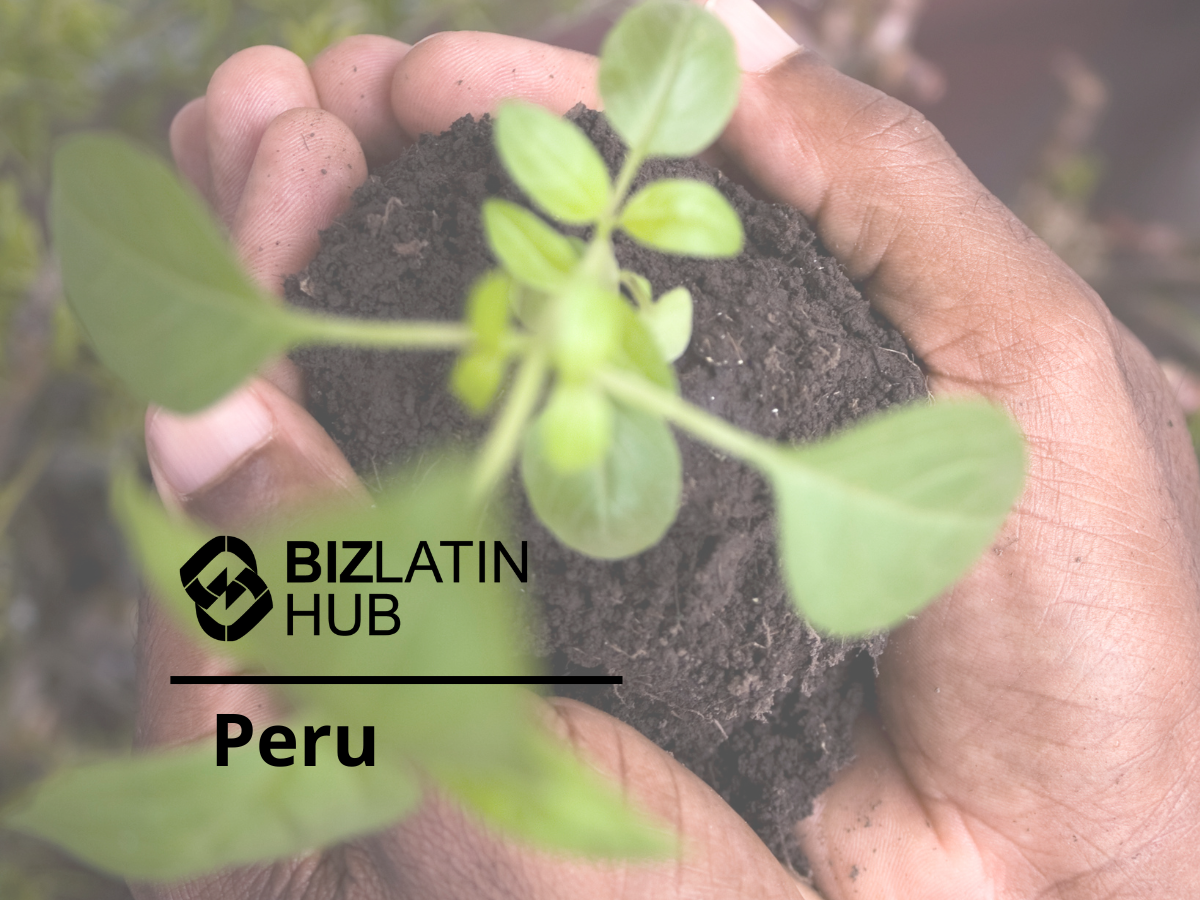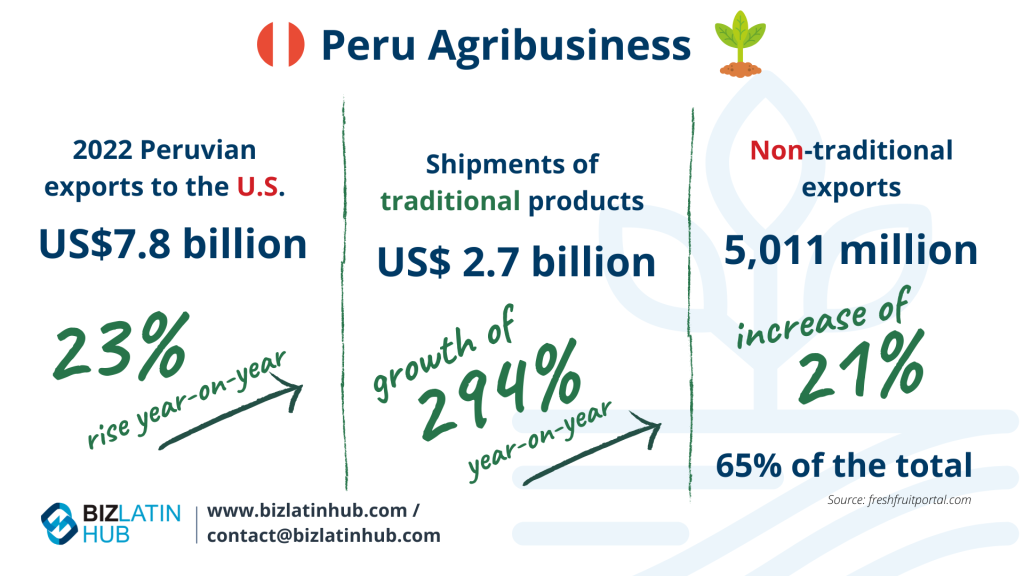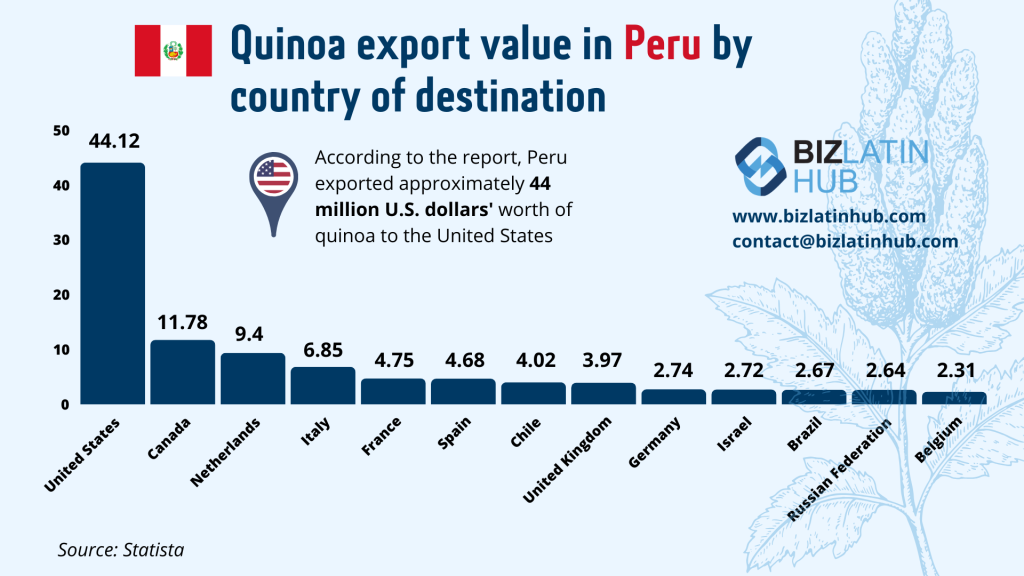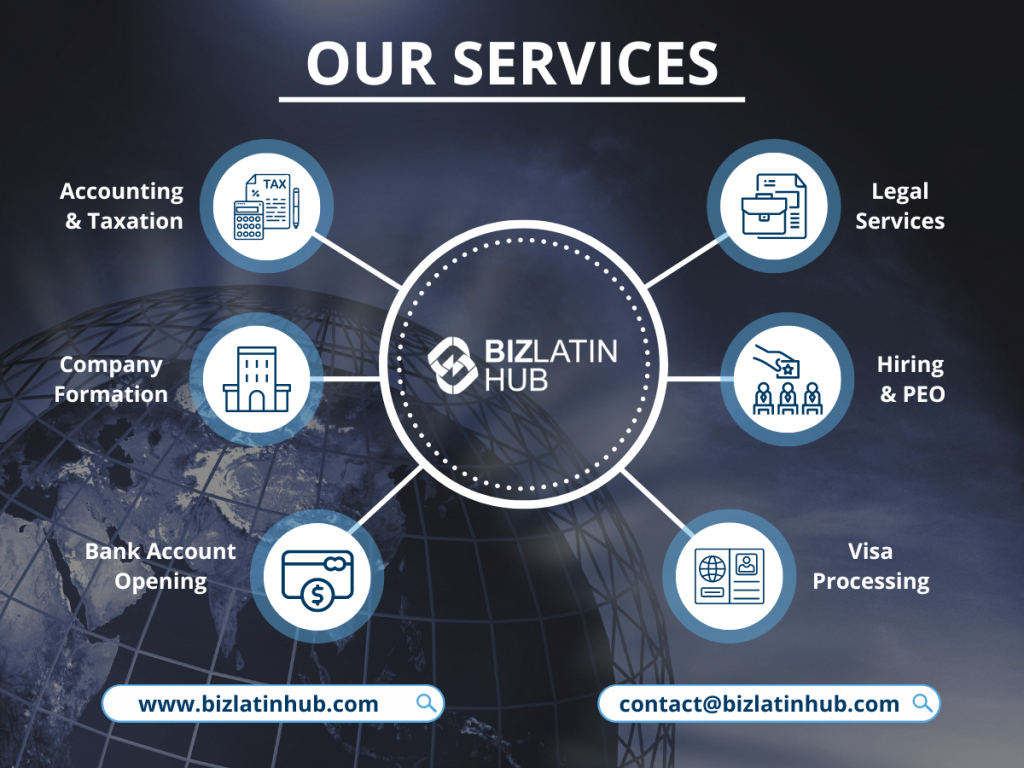5 Reasons why doing business in Peru is great in 2023

Table of Contents
Peru has been among the fastest-growing economies in Latin America over the last ten years. It has low inflation, a booming tourism sector, and a government that encourages foreign investment in many different types of companies in Peru. Doing business in Peru is a great choice for any business.
To promote long-term economic growth, the Peruvian government has also prioritized structural reforms and investments in infrastructure projects. These reforms aim to address issues such as administrative barriers, corruption, and insufficient public services, which can hinder economic development.

Is Peru a good country to do business in?
Peru was recently ranked #31 out of 137 countries on the BTI Transformation Index, ahead of Colombia, Mexico, Ecuador, and Paraguay. The index analyzes and evaluates how countries are steering social change toward democracy and a market economy.
Although there was some recent political turmoil, in February the government revealed 30 new public-private projects worth almost $9 billion, which is positive news for companies that want to do business in Peru.
Top 5 reasons to do business in Peru
- Strong mining industry
- Growing economy
- Favorable tax system
- Few foreign investment rules
- Developing talent pool
Below is a more in-depth analysis of these five reasons why Peru is a great country to do business.
1 – Open to foreign investment
In Peru, both foreign and local investors enjoy equal rights over their investments under the principle of “national treatment” as per the country’s legislation.
It prohibits any authority from discriminating based on nationality, economic activity type, geographic location in the country, regarding prices, exchange aspects, tariffs, non-custom duties, or business information.
Most business in Peru does not have any specific restrictions or requirements on foreign investment. This favorable business environment for foreign investors makes Peru a perfect location for expansion.
2 – Favorable tax system
The Peruvian government offers foreign tax credits for income taxes paid due
to the foreign-source income levied by the Peruvian Income Tax Law (PITL).
To attract more business in Peru, special economic zones have been created. These zones offer tax breaks and other benefits to companies operating within their borders.
Also, these zones provide essential infrastructure, such as high-speed internet, power, and transportation, which make it easier for companies to establish themselves in the country.
There is also a special deduction program for scientific research, technological development, and innovation projects. This program allows taxpayers investing in such projects to deduct either 150% or 175% of the expenses incurred, depending on the project’s nature.

3 – Growing economy
Peru’s growing economy has shown resilience and potential, attracting both domestic and foreign investment. The country continues to explore avenues for diversification to ensure sustainable growth and address persistent socioeconomic issues.
4 – Strong mining industry
Peru has rich deposits of copper, gold, silver, zinc, lead, and natural gas. The mining sector drives Peru’s economy, it contributes 8.5% to its GDP. Mineral exports make up the majority of the country’s total exports, amounting to 63.9%.
The sector has attracted significant investment in the last two decades, leading to an upsurge in exploration and development activities. Peru is one of the world’s leading producers of mineral commodities, with copper and gold being the most valuable mineral exports.
Due to its geological potential and low production costs, Peru’s mining industry is an attractive investment opportunity.
5 – Developing skilled talent
Due to the government’s investments in Science, Technology, Engineering, and Mathematics education in recent years, Peru has a flourishing tech industry.
As a result, it is among the top 10 countries per capita for tech entrepreneurial activity, with 25% of Peruvians starting a business within the last four years.
Peru boasts a vast and expanding tech talent pool, with approximately 30,000 skilled and proficient software engineers.
What are the top 3 industries for business in Peru?
With a population of over 34 million, Peru has an emerging, social market economy with many free trade agreements including the U.S. and China.
Here are the top three industries for business in Peru:
- Mining – As mentioned earlier, the mining and metals sector is the top industry in Peru. It has approximately 200 operating mines employing over 235,000 workers and several large projects in development.
Peru continues to be an attractive destination for mining investments with large metal and mineral reserves. There is also no discrimination between domestic and foreign companies under Peruvian laws, regulations, and customs.
- Tourism – One of the primary attractions in Peru is the ancient Inca city of Machu Picchu, a UNESCO World Heritage site. This archaeological wonder is Peru’s most famous destination and attracts visitors from all over the world. The Sacred Valley, located nearby, is also a popular tourist spot with its stunning landscapes and Inca ruins.
Agribusiness – Peruvian exports to the U.S. rose 23 percent between January and November in 2022. This growth, fueled by Peru’s agriculture and livestock industry had an accumulated growth of 367 percent.
The agribusiness industry in Peru has grown from 582 companies in 2009 to over 945 exporting companies today. Blueberries, fresh asparagus, grapes, and avocados led the way.
These leading industries offer exciting investment and business opportunities in Peru this year.
Biz Latin Hub can help grow your business
Biz Latin Hub can serve as your exclusive partner for establishing and conducting business in Peru.
Our team of bilingual corporate support specialists in Lima can provide you with a customized package of services. These include company formation, accounting and taxation, legal support, hiring, and PEO.
To discover more about how we can assist you in doing business in Peru and the rest of Latin America, contact our expert team today.

The information provided here within should not be construed as formal guidance or advice. Please consult a professional for your specific situation. Information provided is for informative purposes only and may not capture all pertinent laws, standards, and best practices. The regulatory landscape is continually evolving; information mentioned may be outdated and/or could undergo changes. The interpretations presented are not official. Some sections are based on the interpretations or views of relevant authorities, but we cannot ensure that these perspectives will be supported in all professional settings.







